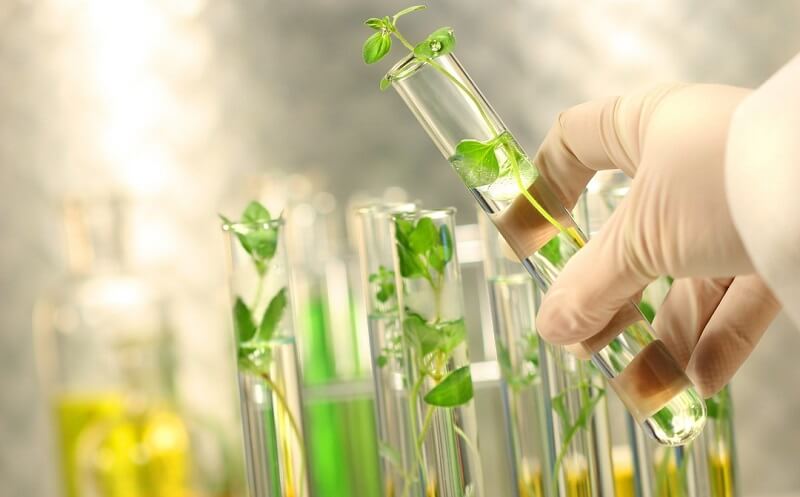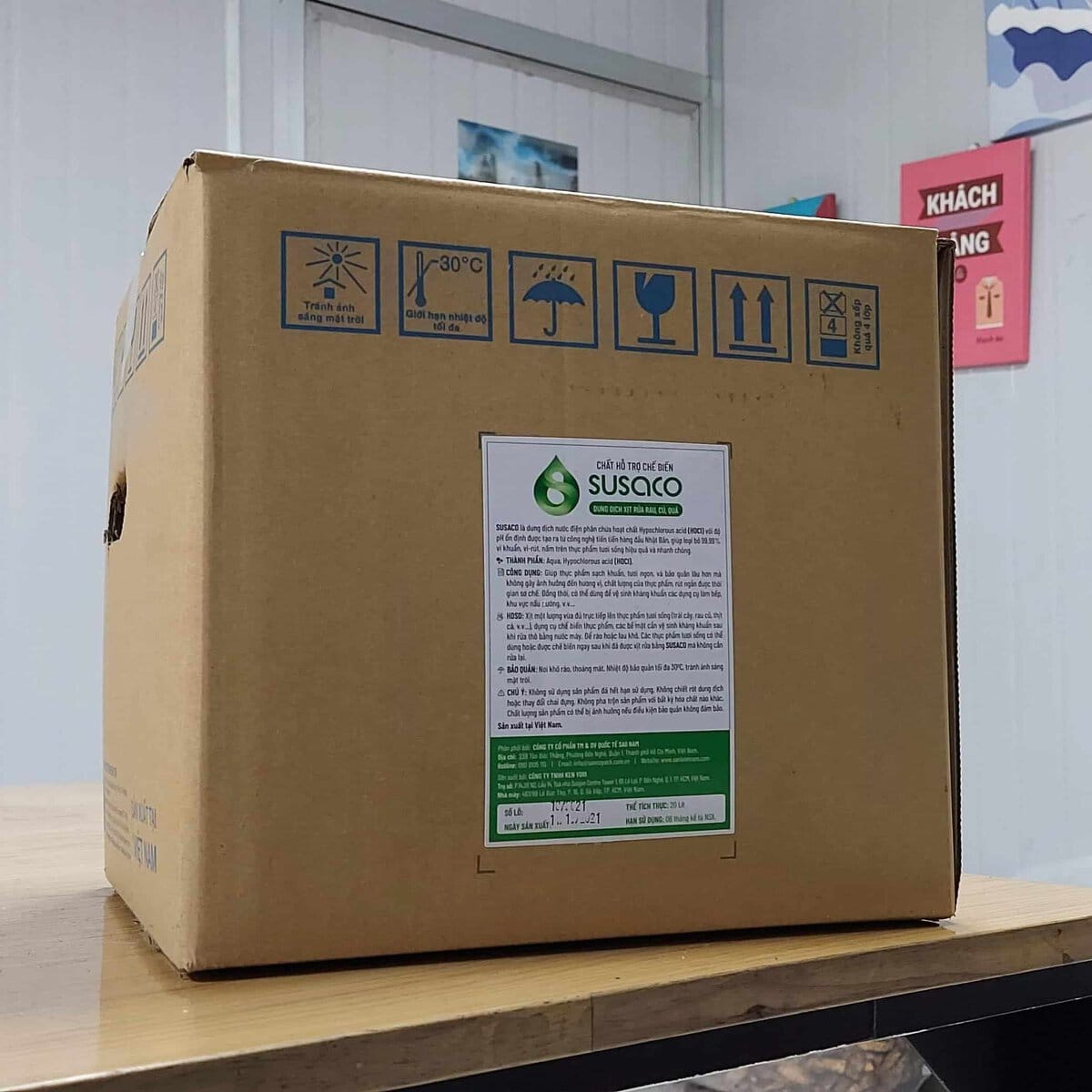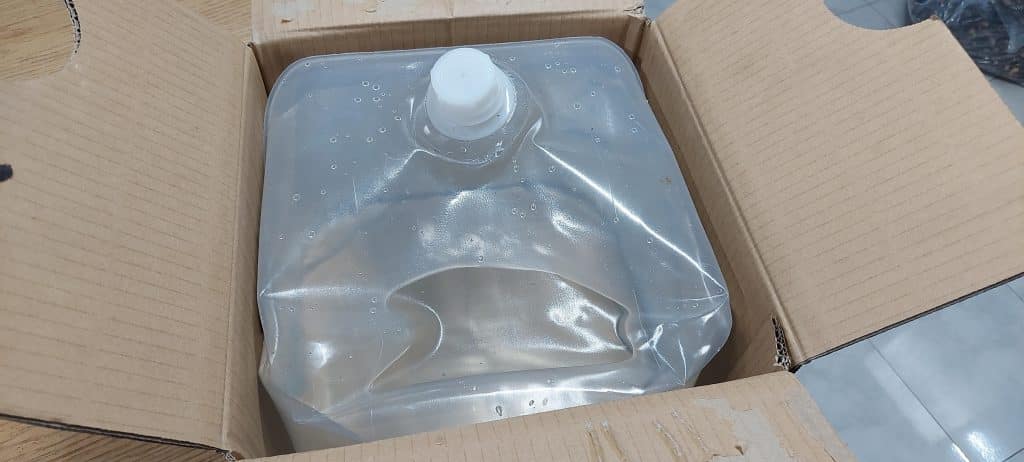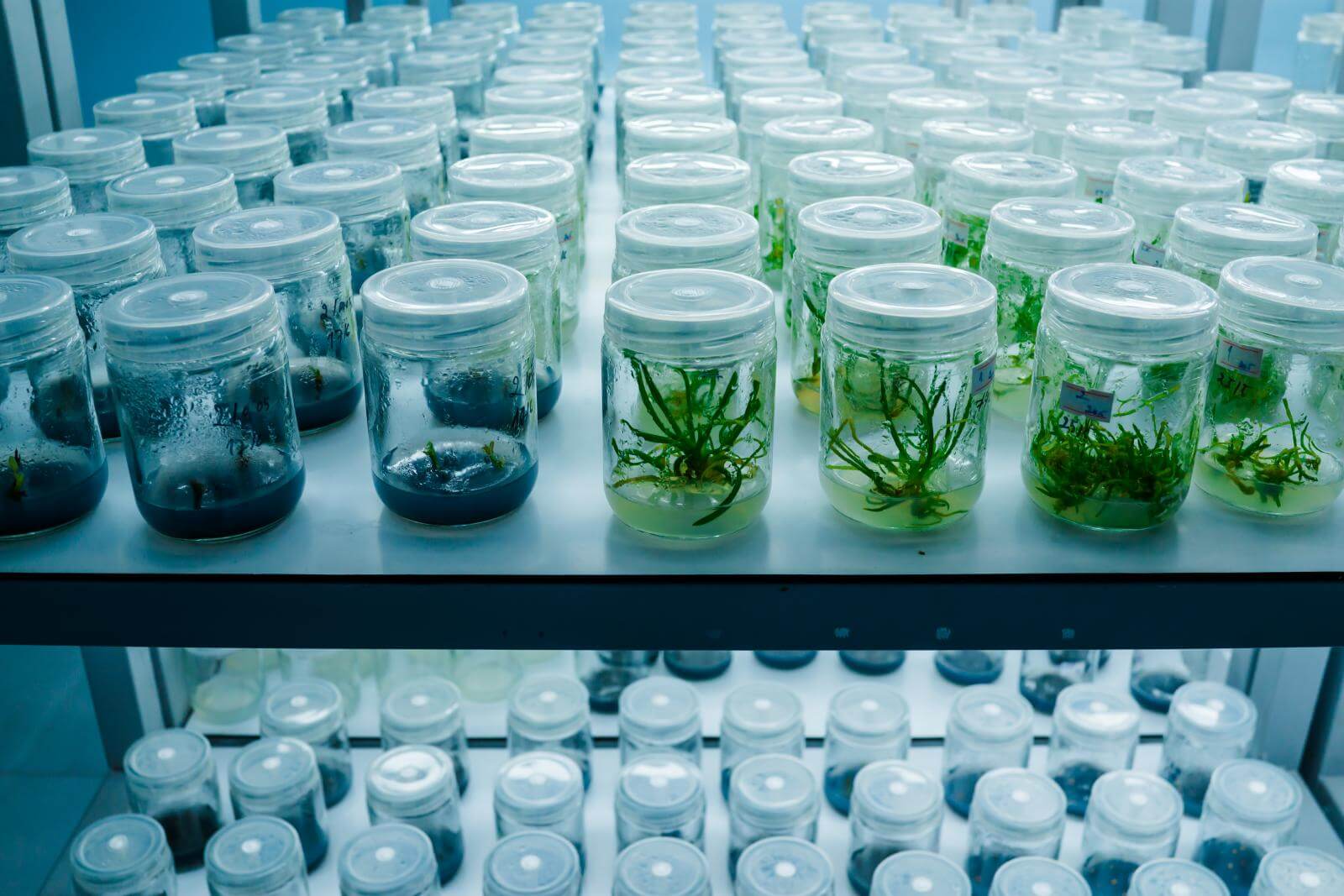Preservation of goods
Acid Hypochlorous Safe And Effective Solution In Plant Tissue Culture
Acid Hypochlorous also known as HOCl solution, is a powerful and versatile disinfectant that has attracted considerable attention in recent years. With its ability to effectively kill bacteria, viruses, and fungi while remaining safe for humans and the environment, hypochlorous acid has become increasingly popular in various industries.
In this article, let’s learn about the properties, uses and benefits of hypochlorous acid in plant tissue culture with Sancopack.
What is Acid Hypochlorous (HOCl)?
Acid Hypochlorous is a chemical compound with the formula HClO, which exists in nature and has strong disinfectant properties. HOCl is naturally produced by the human body to fight bacteria and viruses. Over the years, HOCl has been widely used in medicine, food, and especially in plant tissue culture as an effective disinfectant solution.

Why Is HOCl Important In Plant Tissue Culture?
Strong Sterilization Ability
HOCl has the ability to destroy most bacteria, viruses and molds without harming the surrounding environment. In plant tissue culture, HOCL helps destroy harmful agents, ensuring a sterile environment, increasing the success rate of the culture process.
Safe for Plant Tissues
Unlike many other disinfectants that can damage plant cells, HOCl does not damage plant cells during treatment. This allows plants to grow strong and healthy after being cultured.
Environmentally Friendly
HOCl is a naturally occurring compound and is rapidly biodegradable, leaving no toxic residue in the environment. The environmentally friendly properties of HOCl help minimize the risk of chemical contamination in the laboratory and ensure safety for both humans and the ecological environment.
Convenient and Easy to Use
HOCl is easy to prepare and use, and can be applied to sterilize the surfaces of laboratory equipment, culture media, or directly onto plant tissues without the need for complex protective measures. This reduces steps in the workflow and saves time for researchers.
Diverse Applications
In addition to its use in plant tissue culture, HOCl can also be used in the preservation of plant varieties, cleaning of laboratory instruments and equipment, and the prevention of diseases related to microorganisms in the agricultural industry. 
Advantages and Disadvantages of Acid Hypochlorous (HOCl)
Advantages of HOCL
- Strong bactericidal ability : HOCl has the ability to destroy a wide spectrum of pathogenic microorganisms, including bacteria, fungi, viruses, even drug-resistant strains.
- Safety : When produced and used properly, HOCl is relatively safe, causing less irritation to the skin, eyes, and respiratory tract than many other disinfectants. After reaction, HOCl decomposes into salt and water, making it safe for the environment.
- Wide range of applications : HOCl can be used to disinfect surfaces, tools, equipment, air, water, and even wounds.
- Fast-acting : HOCl works quickly, killing bacteria in seconds.
- No residue left : After sterilization, HOCl decomposes completely, leaving no toxic chemical residue.
Disadvantages of HOCl
- Poor stability : HOCl is an unstable substance, easily decomposed by light, temperature and organic substances. Therefore, it should be stored in a dark, cool place and in sealed containers.
- Cost : Compared to some other disinfectants, the cost of producing HOCl can be higher.

Applications of Acid Hypochlorous (HOCL) in Plant Tissue Culture
- Sterilizing tools : HOCl is used to sterilize glass, metal, and plastic tools before and after use, ensuring absolute sterility.
- Disinfecting work surfaces : Work tables, incubators, and laboratory equipment are disinfected with HOCl to eliminate adherent microorganisms.
- Sterilization of culture media : HOCl solution is used to sterilize various culture media before use, ensuring a sterile environment for the growth of plant tissues.
- Seed sterilization : Seeds are soaked in HOCl solution before sowing to sterilize and stimulate germination.
Notes When Using Acid Hypochlorous (HOCL)
- Concentration : The concentration of HOCl used depends on the type of microorganisms to be destroyed and the type of surface to be disinfected. Please contact Sancopack immediately for detailed advice!
- Contact time : The contact time of tools and surfaces with HOCl solution must be sufficient to ensure effective sterilization.
- Rinse : After disinfecting with HOCl, rinse tools and surfaces with sterile distilled water to completely remove chemicals.
- Safety : When working with HOCl, wear gloves, masks and goggles to avoid direct contact with the chemical.

Prestigious and Quality Acid Hypochlorous (HOCL) Supplier Locations in HCM, Dong Nai, Hai Phong, Hanoi
HOCl is an important chemical in plant tissue culture. Due to its strong sterilizing ability and safety, HOCl plays an essential role in ensuring the sterility and success of tissue culture. However, to ensure effectiveness and safety, HOCl must be used correctly and instructions for use must be followed.
If you are looking for a sterilization solution during tissue culture, please contact Sancopack immediately via Hotline: 0908105115 to receive advice from experts on the appropriate process and dosage.
HOTLINE : 028.73002579 (HCM) – 024.73002579 (Hanoi)
Get advice and order quality, reputable products at:
SAO NAM JOINT STOCK COMPANY (SANCOPACK)
Email : info@vietnamtravelcard.vn.vn
| ✅Preserving vegetables and fruits: | ⭐Ethylene absorption, anti-mold, sterilization, anti-dehydration. |
| ✅Effective: | ⭐Keep fresh longer, reduce damage, slow ripening & aging. |
| ✅Standard: | ⭕Food safety, US FDA |
| ✅Biological products: | ⭐ Chitosan, 1-MCP, MAP, Natamycin |
| ✅Certification: | ⭐Full quality certification. |


